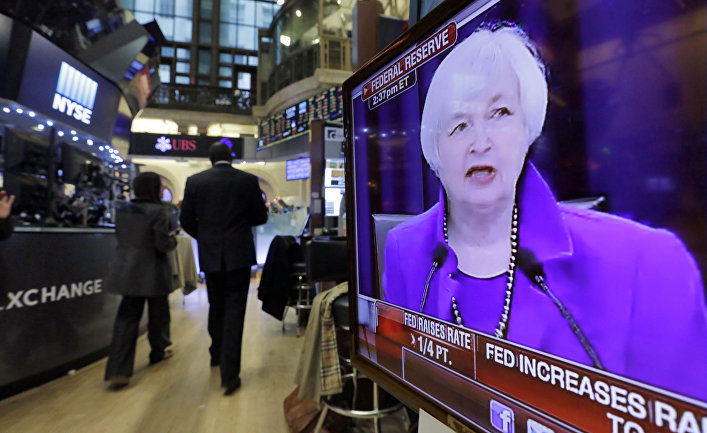The principle note of interest at the actual sitting of the Federal Reserve Open Market Committee was that, by contrast with previous meetings of the Committee, Federal Reserve Board of Governors Chair Janet Yellen dispensed with a press conference on the details of the two-day sitting, and confined herself to a simple announcement. This means that if investors had previously hung on every nuance of intonation in the announcement of America's chief banker, they were now forced into interpreting every comma and point of her statement.
Central bankers are sniffing the wind
Of course, the meeting produced appropriate food for thought. In the first place, Yellen and her staff showed that their views on the prevailing world economy – over the month which had passed since the Fed's last historic meeting in December, at which interest rates were hiked for the first time in nearly nine years – had moved on to some extent. These seemingly insignificant changes gave investors cause for saying that although the Fed hasn't abandoned plans for rate rises, such rises would be wheeled out more cautiously and slowly that had been expected at the end of last year. For example, growing numbers of analysts believe that when the FOMC meets again in March, the rate is likely remain unchanged.
Federal Reserve declines to raise key interest rate, citing slowing economic growth. https://t.co/exYo6jQ7ZU. pic.twitter.com/dtAK5ywgpS
— CNN Breaking News (@cnnbrk) January 27, 2016
Ryan Sweet, Senior Economist at Moody's Analytics Inc was cited by Bloomberg as saying “the Fed is in a standby and monitoring mode right now. They're watching to see what the global economy and the financial markets do, and how that affects inflation, and what their views are on the status of the economy.” The group of America's main bankers admitted that expectations of noticeable growth in the world economy are becoming ever more enfeebled and unreliable. The FOMC announcement makes it clear that the Fed will be keeping very close tabs on world economic growth and financial systems, to evaluate the impact the results of the growth scenario on the USA's labour markets and inflation – the major economic indicators which America's central bank takes into consideration when setting interest rates.
Former optimism
Back in December American bankers were in more optimistic mood, leading them to assess the risks as 'balanced'. Now the statement avoids evaluating risk. Its authors will only go as far as saying that they are closely monitoring the world economic and financial situation. “This new situation has weakened the likelihood that interest rates will be raised in March,” commends BNP Paribas's Chief Economist in NYC, Laura Rosner. “The FOMC statement points up the lack of confidence amongst members of the FOMC. There's no consensus among them about what the data they hold actually means.” No less than a month ago, the Fed was predicting the pace of growth in America's GDP at 2.4% for 2016. However, contradictory data has come in over the month that followed that pulls the rug from under these forecasts.
The Federal Reserve's credibility on the line https://t.co/bcvKJFaVmd pic.twitter.com/CzVxMGrLJM
— Financial Times (@FT) January 29, 2016
The number of new jobs outside the agricultural industry – the main indicator in the labour market, and which affects the rise or fall of the US dollar, has hovered around 229,000 for the past six months. But over just a month, prices for petrol at filling stations, according to the American Automobile Association, dropped by 18 cents per gallon.
Markets quaked quietly
The decision to leave rates unaltered was mostly expected – but this doesn't mean to say that the financial markets were left unmoved by the FOMC statement. Even so, reactions to the statement were hardly frenzied, and they quickly took the new realities on board. In practice this saw the Standard & Poor's 500 Index droop on Wednesday by 1.09%, while the Dow Jones closed down by 1.38%, and the Nasdaq by 2.18%. Meanwhile in the Old World, where the working day is now at its height, stock markets opened in the red. The British FTSE 100 Index, the German DAX and the French CAC displayed remarkable unanimity, all opening the day with drops of around 0.7%.
The reaction on the currency markets was even weaker. The dollar held its position against the Japanese Yen, at 118.56, while rising slightly against the Euro at 1.0876, and the Pound at 1.4242. Overall we need to admit that the financial markets response to the first meeting of the FOMC Fed Committee was very calml. The absence of any major rises or falls is exactly what the global financial system needs right now.






